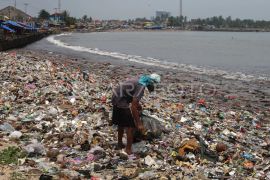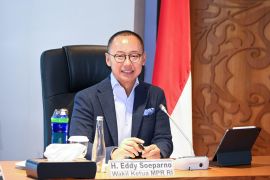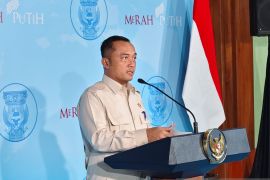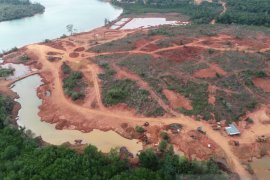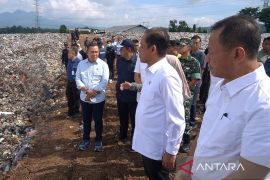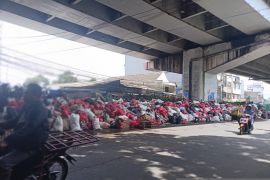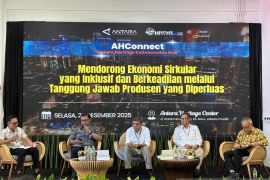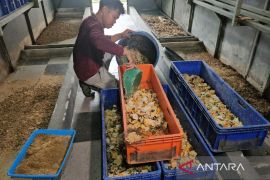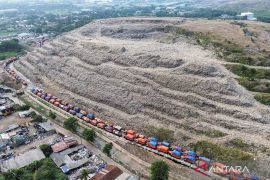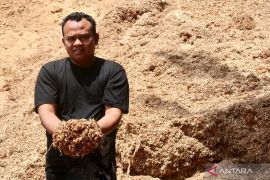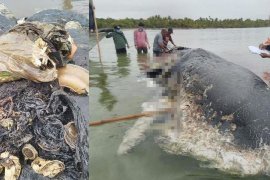The interventions will be carried out under the Waste-Free Healthy Oceans (Laut Sebasah) program, which aims for the comprehensive management of marine debris from upstream to downstream.
“Marine debris remains a problem in Indonesia, and it is a major one,” Deputy Minister of Marine Affairs and Fisheries, Didit Herdiawan, said at the launch of the program here on Wednesday.
Laut Sebasah will be implemented through cross-sectoral collaboration involving ministries, agencies, regional governments, the private sector, academics, and non-governmental organizations (NGOs).
The program was initiated because Indonesia is one of the largest waste producers globally.
Based on data from the National Waste Management Information System (SIPSN), Indonesia’s waste generation is projected to reach 50,062,054 tons in 2025.
Of the total, approximately 20,024,821 tons of waste could potentially enter the ocean through rivers, coastal areas, small islands, ports, and marine activities, and thereby, pose a risk to coastal ecosystems and marine biota.
Director general of marine management at the Ministry of Marine Affairs and Fisheries, Koswara, said that after establishing commitments and agreements, strategic steps will be taken to address the issue.
These will include assessments of area management, especially in river areas, he added.
According to Koswara, the results of the assessment will be verified and become the basis for providing disincentives or incentives.
He further said that the Laut Sebasah program is not only envisaged as a ministry initiative, but also a collaborative movement cutting across sectors and regions.
Through synergy and joint commitment, the Ministry of Marine Affairs and Fisheries aims to prevent 70 percent of waste from entering the ocean by 2029.
Related news: Indonesian govt urges regional waste management road map
Related news: Waste management needs large budget: official
Translator: Ahmad Muzdaffar, Raka Adji
Editor: Primayanti
Copyright © ANTARA 2025

